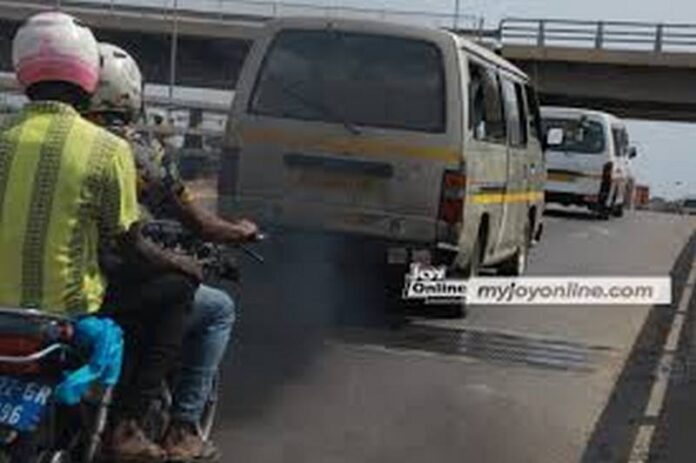In the bustling streets of Accra, Kumasi, and other urban centres across Ghana, the hum of traffic is constant.
But beneath that familiar sound lies a dangerous and growing threat to the nation’s environment: poorly maintained vehicles with damaged or spoilt exhaust pipes.
Every day, thousands of taxis, trotro buses, private cars, and cargo trucks hit the roads—many of them expelling thick clouds of smoke due to faulty exhaust systems. These emissions, rich in carbon monoxide, nitrogen oxides, and unburnt hydrocarbons, are not just an eyesore; they are major contributors to air pollution and, by extension, climate change.
A Silent Crisis in Motion
Ghana, like many developing countries, is facing the brunt of climate change: erratic rainfall patterns, prolonged dry seasons, increased temperatures, and rising sea levels along its coastlines. While deforestation and industrial pollution are well-known culprits, one often ignored factor is vehicular emissions—especially from cars with spoilt or removed catalytic converters and exhaust pipes.
These faulty exhaust systems release more greenhouse gases than properly functioning ones.
When cars lack effective emission control systems, their pollutants go unchecked into the atmosphere, accelerating the warming of the planet. Unfortunately, many Ghanaian drivers either neglect regular car maintenance or deliberately remove catalytic converters to boost engine performance, unaware of the long-term damage to public health and the environment.
Air Quality and Health at Risk
In areas like Circle, Madina, Kejetia, and Takoradi, residents are increasingly complaining about respiratory issues: coughing, asthma attacks, and general discomfort, particularly during rush hours. According to environmental experts, the black soot and fumes from these vehicles are contributing to worsening urban air quality, leading to both immediate health crises and long-term environmental degradation.
Children and the elderly are the most vulnerable. With most schools and homes located close to busy roads, daily exposure to toxic air is becoming a hidden public health emergency.
Policy Gaps and Enforcement Challenges
The Environmental Protection Agency (EPA) of Ghana has laws and standards for vehicle emissions, but enforcement remains weak. Vehicle inspections are irregular, and some roadworthiness certificates are issued without proper testing—a practice often enabled by corruption or negligence.
Meanwhile, Ghana continues to import large numbers of used vehicles from Europe, the U.S., and Asia—many of which are over 10 years old and already prone to exhaust system failures. Without firm regulations and a proper inspection regime, the problem is only set to worsen.
What Can Be Done?
Experts and environmental advocates are calling for:
-
Stricter enforcement of emission standards during DVLA vehicle inspections.
-
Banning the importation of very old vehicles with high emissions.
-
Subsidising repairs or replacements of exhaust systems to make them affordable for drivers.
-
Public education campaigns on the environmental impact of spoilt exhaust pipes.
-
Investment in cleaner transportation options, like electric buses or bicycles, especially in city centres.
The Road Ahead
Ghana has made commitments under the Paris Climate Agreement to reduce its carbon footprint. But without addressing the vehicular pollution crisis head-on, these targets will remain far out of reach.
Spoilt exhaust pipes may seem like a minor issue in the grand scheme of climate change, but their cumulative impact is undeniable. It’s time for both authorities and citizens to recognize this silent threat and act before Ghana’s skies grow darker, hotter, and deadlier.
By tackling even the smallest sources of pollution, Ghana can pave the way toward a cleaner, healthier, and more climate-resilient future.
Feature by: Bismark Boateng



